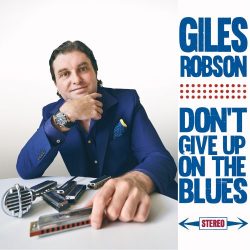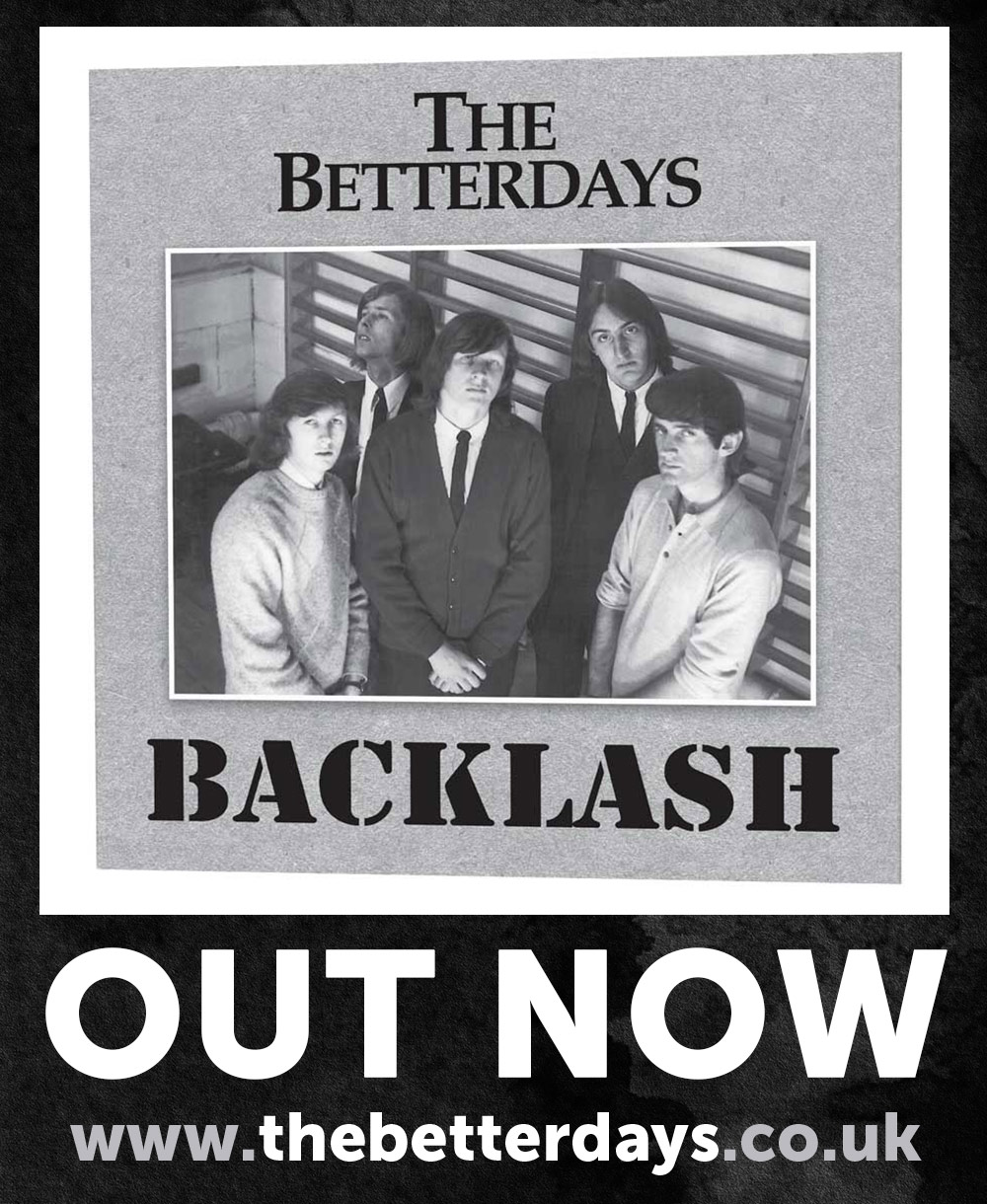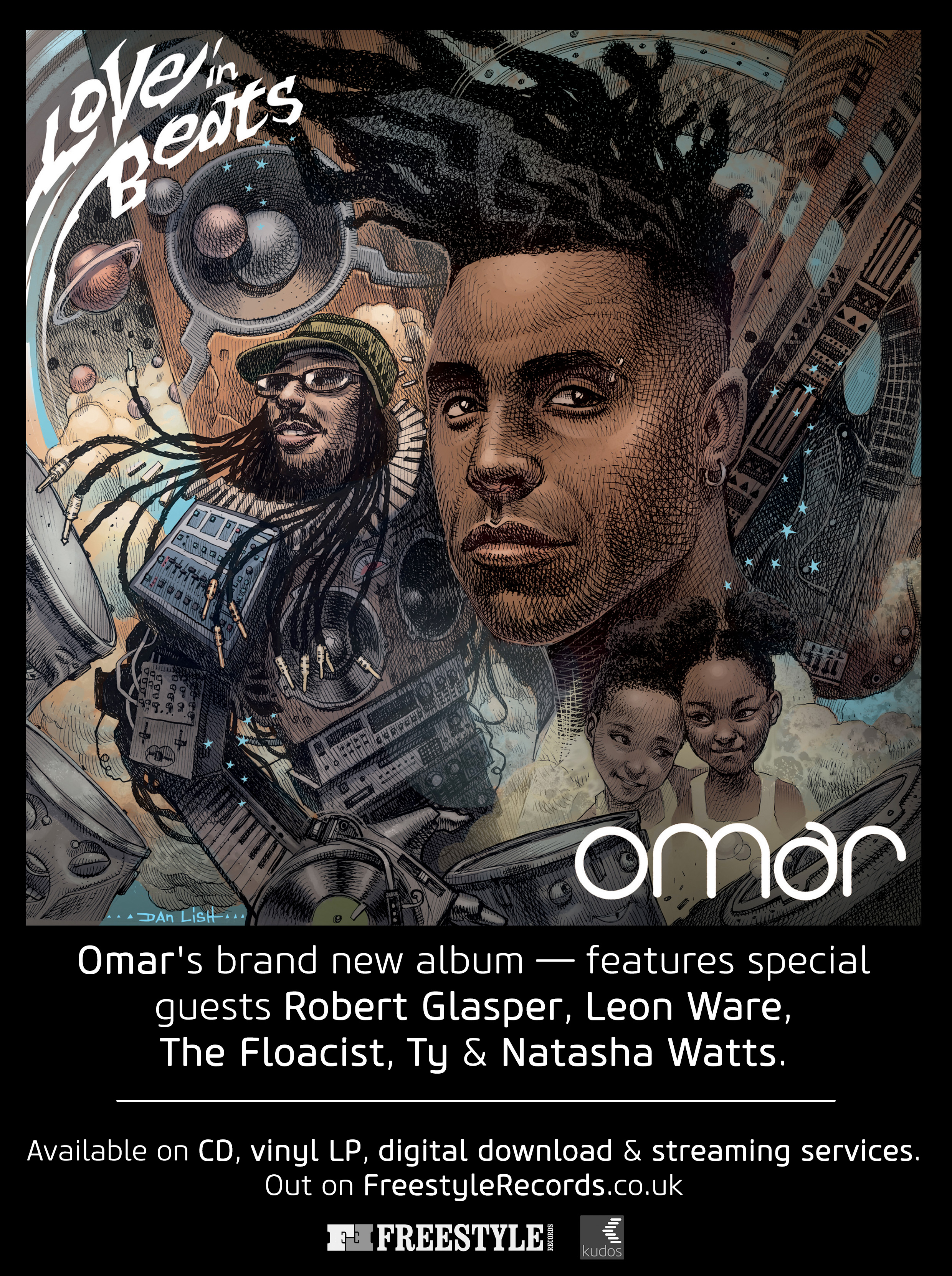The island of Jersey is about as far removed from a connection to the music genre of the blues as you can get. Or is it?
The home of 41-year-old Giles Robson, who blues fans globally know as one of the most successful harmonica men there is right now.
The only British guy to be signed to the iconic Chicago blues label Alligator Records.
He is only one of three Brits alongside legends Eric Clapton and Peter Green, to win a Blues Music Award in Memphis (The Grammys of the Blues) in it’s forty year history.
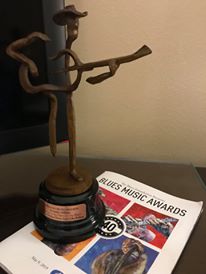
Both of those achievements are not to be sniffed at, and go some way in confirming that this chap knows his way around a harmonica.
But this is no copycat. Giles holds his own up against any US blues master still blowin’ their gob iron today, and they all raise an eyebrow or two when they first hear him, and then welcome him into the fold of that hallowed blues harp circle. Put simply, he is %*&*$*% good at what he does, and the big boys know it!
So, for those of you outside of the blues scene, let’s find out some facts about this audacious blues man, with a quick-fire Q&A. He’s sat in the big leather chair, bright spotlight on his face, so off we go. First question: Why the harmonica and how did you get the bug for it?
“I heard it on TV first in the 1990s. On ‘The Fresh Prince Of Bel Air” and the “Roseanne” theme tune. I had been playing saxophone and had really liked old big band swing jazz, from the old movies that were on TV.
Acid Jazz
“Unfortunately, my sax’ teacher only wanted to teach me ‘Acid Jazz’ so I lost interest. When I heard the blues harmonica, I heard a lot of what was in the big band stuff: The swinging feel and the phrasing, so I immediately became interested”.
So who were the very first harp guys you heard which lit the fuse for you? “I first heard the African American acoustic guitar and harp duo Cephas and Wiggins, who were playing in my local arts centre, two weeks after I picked up my first harmonica. In the middle of Jersey, a 45-square-metre island, 3000 miles from the USA, I could experience real blues so soon after picking up my first harp. I was 14 and started to investigate the music.
“This was 1992 and my local Woolworths had loads of blues compilations, including the Charley Blues Masterworks Series. Two Albums stuck out from back then. Muddy Waters “Rock Me” on the Charly Blues Masterworks series, which I had on cassette tape. This had the crème de la crème of Muddy’s Chess label sidemen, with Little Walter on harp.
“The depth of Walter’s harp sound – the tone and feeling – just knocked me out. It also had several from ‘Muddy Sings Big Bill Broonzy’, with James Cotton on harp; which was a different approach that I also liked.
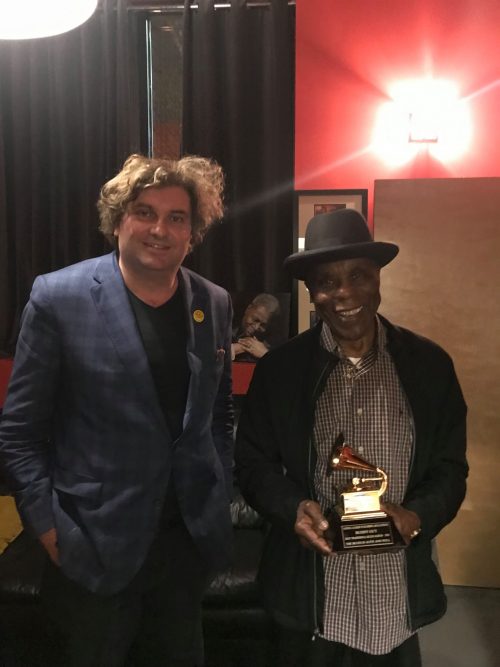
“The second album was, ‘The Ultimate Blues Collection’, from the Castle label. It was a double cassette compilation, all the best blues tunes. One of my favourites on there was ‘Don’t start Me To Talkin’ by Sonny Boy Williamson.
No sax appeal…
What was it about harmonica that touched your soul, and not guitar etc? “The blues harp is an incredibly versatile instrument – the rhythmical effects, range of tones, chording and playing through an amplifier. It struck me that it had more going for it than the sax’.
“Both in terms of emotional expression and it seemed to fit in more to electric bands than a sax’ could, because you could play it through an amp’. Also, because I was coming at it from a jazz background, so it stood out to me more than the guitar because the Chicago harp players based a lot of their phrasing on jazz and rnb saxophone phrasing”.
How fast did you learn and get it sounding decent? “I was self-taught by recording myself playing along to the blues albums. I had two cassette players; one I played the album cassette on and the other I used to record myself onto a blank tape.
“I then listened back to what I’d played – analysed it and tried again to improve. I pretended I was part of the band and every time I would play along to the , I would try to learn the solo, note for note, and then play my own variations.
It defined me…
“In about two years, I played live for the first time. I won a big music competition at school at 16, singing and playing ‘Hoochie Coochie Man’, and from then on that defined my identity at school”.
Who were your mentors? “I was playing along to all the harp Gods on the compilations I had. Little Walter, Sonny Boys 1&2, James Cotton, Walter Horton etc and I learned that there was a wide gulf in terms of what they were doing artistically, and what everyone has been doing since.
“Apart from Sugar Blue and Billy Branch. But I didn’t learn about these players until much later. These original Chicago-based players of the 40s, 50s and 60s were the only players that were worth listening to.
“Over the last few years, my big influence has been touring with the great Chicago blues harp master Billy Branch. I’ve stolen a lot of stuff from him (as he’ll tell you!!). Not only harp playing, but also on-stage showmanship”.
What sets you apart from other harp players around the world? “I have tried to have my own style while keeping the magic and soul that the old masters seemed to possess. There are many great players around the world, and I’m proud just to be a small part of it”.
Giles has worked with some of today’s biggest harmonica stars, on stage and in the studio, including Magic Dick, Billy Branch, Charlie Musselwhite, Joe Louis Walker, Sugar Blue and James Harman. His skills have taken him to many countries, including the USA, Russia, Czech Republic, Poland, Romania, France, Shetland Islands, Italy, Switzerland, Luxembourg, Germany, Holland, Belgium, Spain and across the UK.
His discography so far:
2007: One Good Reason (EP)
2012: Crooked Heart Of Mine
2014: From The Basement
2016: For Those who Need the Blues
2018: Journeys To The Heart Of The Blues
2019: Don’t Give Up On The Blues
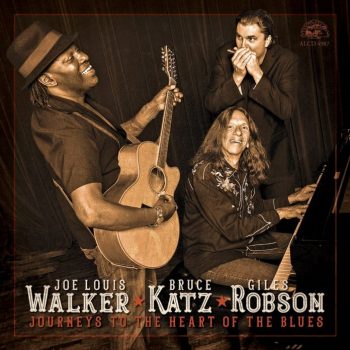
So, after all his travels, does he think that the blues is healthy around the world, or does it need new young blood to keep it alive? “When you see the amount of high quality releases each year, and the large volume of festivals and gigs, I would say the blues is very healthy. With the amount of great acts/artists/musicians it has at the present time, both young and old. In terms of young blood, there needs to be more young people going into the business end of it, and I’m talking mainly in terms of young concert and tour promoters”.
How does the UK blues scene compare to the rest of the world? “It’s mainly a blues-rock scene in terms of what’s popular. There are also very few young people that turn up to the gigs, not the case in Europe. The UK is considered one of the toughest countries to tour in the world, but this has apparently always been the case.
“I can remember listening to BBC Radio 2’s blues show back in the early 90s, and the then host, Paul Jones, saying it was a shame all of the big US touring acts seemed to bypass the UK for Europe.
“That said, I’ve had some great UK support in terms of gigs and radio play, but I’ve certainly had to largely focus my efforts elsewhere, in order to make a living, as the UK is largely not financially viable to tour a full band. Sometimes the conditions are very tough in terms of hospitality too”.
“The UK club gigs and some festival gigs pay two to three times less for a full band than a European club, and sometimes don’t provide food and accommodation. So, when you work it out on paper, factoring in all the time and costs, you are in a loss-making situation. But I love the UK audiences and will tour as an acoustic duo next year, which is more affordable”.
Buddy Guy and me!
Tell us about your last trip to the and the best moments? “Appearing on CBS breakfast television in Memphis with the great Joe Louis Walker, and then being recognised all over Memphis. Being congratulated by Little Walter’s daughter Marion, as I returned to my table after winning the Blues Music Award.
“Playing with Joe Louis Walker at Ground Zero in Clarksdale, Mississippi. Jamming with Lurrie Bell and Kirk Fletcher in Rosa’s lounge in Chicago. Visiting my good friends Billy and Rosa Branch’s home on the southside of Chicago. Visiting Little Walter’s grave and Sonny Boy Williamson’s grave in Tutwiler, Mississippi and the site of Muddy Water’s cabin on Stovall’s plantation”.
On meeting blues legend Buddy Guy? “Incredible. A true inspiration, the way he has kept the blues alive and how seriously he takes it. He performed on stage that night at his club Legends, and it was just amazing to experience his singing and showmanship.
“We (Giles and a freelance BBC journalist) interviewed him as part of the BBC radio documentary ‘Journeys To The Heart Of the Blues’ and we got an incredible interview. His passion and commitment towards the blues, truly inspiring”. They also interviewed Bobby Rush for the radio programme.
Does the UK stand up well against other parts of the world when it comes to blues players/bands/artists? “Yes indeed. There are many amazing performers and bands who rank as some of the best in the world. What it doesn’t have is the passionate gigging infrastructure that countries like Holland have.
“A lot of straight blues bands tend to go around in ever decreasing circles, both financially and opportunity-wise, and this can be very demoralising. It’s a shame, because blues is an evergreen music, timeless and can have a powerful effect on audiences”.
Out of fashion for UK TV and radio…
Does the blues get a fair crack of the whip for national radio and TV exposure in the UK? “Not at all. There is nothing much in the UK for any music that isn’t ‘in fashion’. National radio and TV that has any reach only deals with the fashionable zeitgeist. The radio situation in the UK has always been fairly monolithic. In other countries it’s more widely spread, with different stations and college radio playing a wider array of more alternative and niche music, including blues”.
His previous and current records have dented several charts and been praised by critics and fans alike. “Journeys To The Heart Of The Blues” is an album made with guitarist and singer Joe Louis Walker and pianist Bruce Katz. Released by Munich Records and Alligator in 2018.
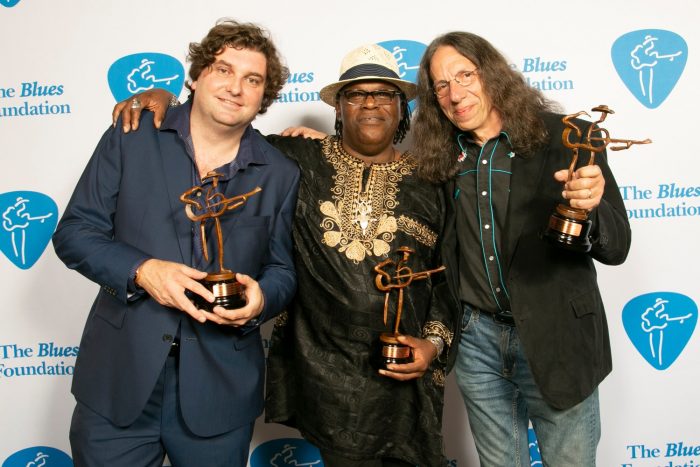
In 2019, straight after the blues awards ceremony in Memphis, Giles travelled to New Jersey to team up with Bruce Katz and his band at American Showplace Recording Studios, to make his latest record, “Don’t Give Up On The Blues”.
“This album is really a letter of gratitude and respect to the music, not only for the wonderful career it’s given me, but also because on a personal level it’s seen me through some tough times over the past few years, and will be there for me to help me out in years to come. I wanted to keep the powerful essence and feeling of the blues, but also add my own personal stamp to it”.
He sums up what this genre of music means to him as a person, other than as a musician: “Blues has become my life. The older you get and the more life hits you, both positively and negatively, the blues has a song and a feeling that is there with you for that moment.
“It either heightens the positive or consoles you in the event of the negative. True blues is timeless and beyond fashion, and over the last few years playing the music across many countries internationally, I’ve seen the incredible effect it has had on people of all races and nationalities. It knows no borders and is a music that is for all humankind”.
By Simon Redley



